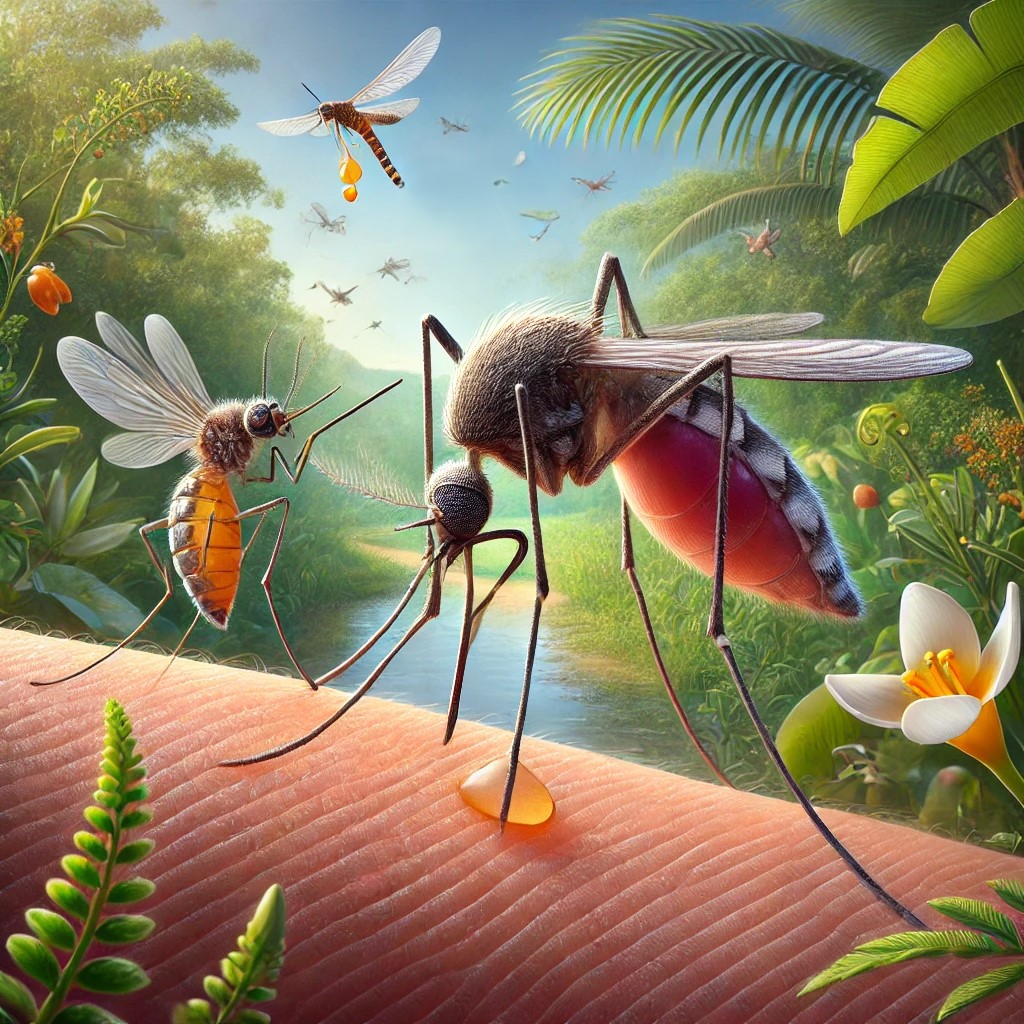
Mosquitoes are the only winged insects capable of transmitting diseases between animals and humans, becoming vectors of viruses and parasites that affect human and animal health. Understanding their feeding habits is crucial for developing effective strategies for control and disease prevention.
Mosquito Feeding: Beyond Nectar
Basic Feeding
- Males and females: Both primarily feed on nectar and plant juices, using their needle-like proboscis to extract these sugar-rich liquids, which provide the energy needed for their daily activities.
Female Feeding
Females have additional nutritional requirements related to reproduction:
- Blood: Necessary for developing their eggs and completing the gonotrophic cycle.
- Selectivity: Some species prefer feeding on mammals, birds, or reptiles, while others, such as the tiger mosquito (Aedes albopictus), have a more varied diet.
Factors That Attract Mosquitoes
Mosquitoes locate their hosts through various stimuli:
- Carbon dioxide (CO₂): Released during respiration, it can be detected from up to 50 meters away.
- Body odors: Including lactic acid, ammonia, and compounds found in sweat.
- Body temperature: Mosquitoes are sensitive to the heat emitted by their prey.
- Movement: Physical activity increases their attraction.
- Alcohol consumption: Studies have shown that drinking beer can make a person more attractive to mosquitoes.
Curiosities About Mosquito Feeding
- Only 200 of the 3,500 known mosquito species are hematophagous.
- Males never bite, as they do not need blood for reproduction.
- Some species feed on worms and leeches, while others play a key role in plant pollination.
Impact on Disease Transmission
Mosquito feeding habits have direct implications for disease spread:
Human Disease Vectors:
- Aedes aegypti derives more than 95% of its blood from humans, making it an efficient vector for viruses like dengue and Zika.
- Culex spp. feeds on both birds and humans, facilitating the spread of viruses like West Nile.
Specialization and Selectivity:
- Some species adapt to specific populations, complicating control efforts.
The Importance of Ongoing Research
Understanding mosquito feeding habits is essential to:
- Identify local species: Some species with similar habits may have different impacts on public health.
- Develop control strategies: A better understanding of their feeding preferences enables the design of more effective entomological surveillance campaigns.
- Optimize resources: Targeted surveillance reduces costs and improves outcomes in controlling mosquito-borne diseases.
Mosquitoes are much more than simple pests; their feeding habits shape their impact on ecology and human health. Understanding what drives them to feed and how they choose their hosts is critical to combating the diseases they transmit.
Do you have mosquito problems at home or work?
At Eco Fauna Control, we provide effective and personalized solutions to protect your environment. Contact us for more information.
